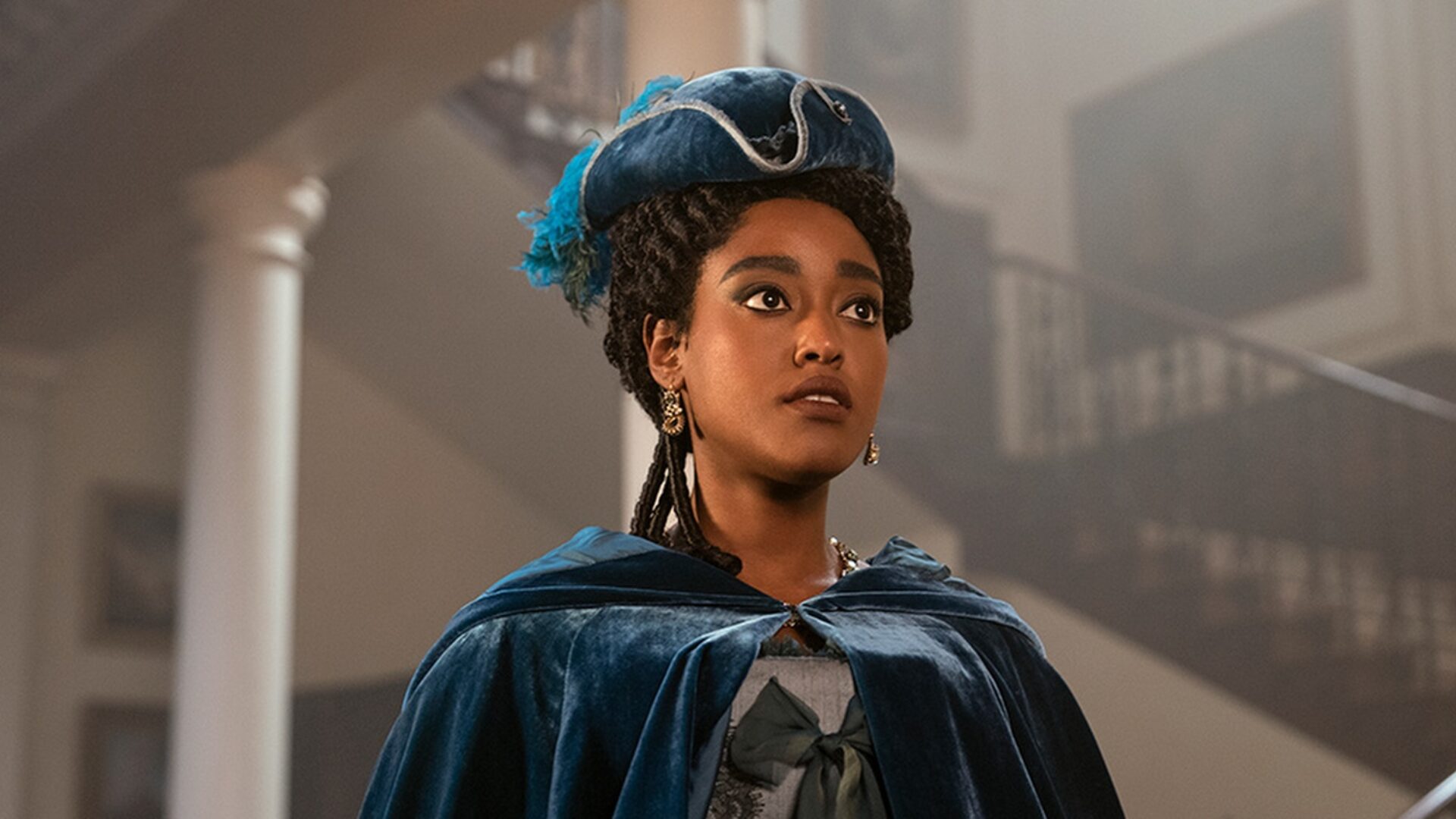
How does it feel to be loved by a Black woman?
This question resurfaces in interviews, on social media, and in conversations. We challenge men to vocalize their desirability for Black women and to validate the love and support we give. Since Black women are usually the least appealing in society, we listen to that answer, hoping to escape to a world where we’re desired, considered beautiful, and sought after.
Only through a few mediums can we get to that place— outside of being loved—- and one is media. There are cultural classics, but in the mainstream, not so much— until Bridgerton. The last season of Netflix’s most popular English- language TV series centered on women of color being the prize. The newest season does the same.
Shonda Rhimes, the writer of the Bridgerton, scripted a Black woman as the chosen one for the most sought-after man in England during a period when Blacks and whites didn’t integrate. We spoke to Arsema Thomas, who plays young Agatha Danbury in Queen Charlotte: A Bridgerton Story, about how revolutionary this season is.
“Escapism is so important for Black women because we would like to have that ability to leave struggles and strife behind… in something written by another Black woman… it feels justified,” Thomas expressed to GU. “I’ve always felt overlooked, you know? I’ve always been seen as black first and a woman second. There is something that is stripped from me. My femininity has never really been something that I’ve been able to own the way that other women have been able to,” she continued.
We live in a world where even if one possesses God-given beauty, one can be considered unattractive because of skin color. In Bridgerton, the color of the queen’s skin is not considered or even mentioned by the one in pursuit of her. She is deemed attractive regardless because, universally, she is. Because of that, the one in search can explore her depth of character without society’s distraction on skin color. She’s then recognized and glamorized as a woman before she is Black. She is loved solely for her.
Black women have learned to encourage each other because of society’s treatment of us. “I don’t know a group of people that call themselves Queens as much as Black women,” Thomas said jokingly, but it’s true.
We must remind each other of our beauty, femininity, and grace, not to appeal to the opposite sex but to remain confident in a world that treats us as less than others. In Bridgerton, we wear the crown. We’re the center of compliments and honor.
“To see ourselves reflected as queens are extremely affirming and validating because we’re usually the only ones calling ourselves Queens. For the whole world to join in on that and engage with that, I think there’s something revolutionary about it: you can’t help but fall in love,” Thomas adds.
There’s so much to unpack in this series other than the desirability of Black women- there’s respectability politics, using women to breed, lack of preparation for relationships, societal expectations, and more.
But, one topic heavily explored this season is finding contentment in singleness. One of the main characters is a beautiful, respectable, and desirable woman from Sierra Leone. She uses the unfortunate circumstance of becoming a widow to launch into self-discovery.
Arsema Thomas, who plays that role says, “It’s been beautiful to be this character, Agatha, who voluntarily chooses to be alone, to say that no man is worth her time or fulfills her in any meaningful way. She says ‘I would rather engage with my freedom than be with somebody’, and that I think is such an attractive thing.” Her character didn’t need “validation through the male gaze.” All she needed was to learn and find contentment in herself, ignoring society’s suggestions.
Whether you’re looking to whisk away into a fantasy or find encouragement for the reality you’re in– Bridgerton has a lesson for every Black woman. Shonda Rhimes is changing cultural norms by placing us as elegant main characters. That’s the power of representation. That’s the power of a Black woman’s pen. Our femininity will be embraced as is. The standard is black women are beautiful, deserving of pursuit, and a life of happiness– not because we’re Black, but because we’re women.
About the author: Shelby Denise Smith is a full-time Social Media Editor and part-time Freelance Writer. She loves writing about news, wellness, and beauty and hosting impactful conversations with influencers and experts on those subjects.